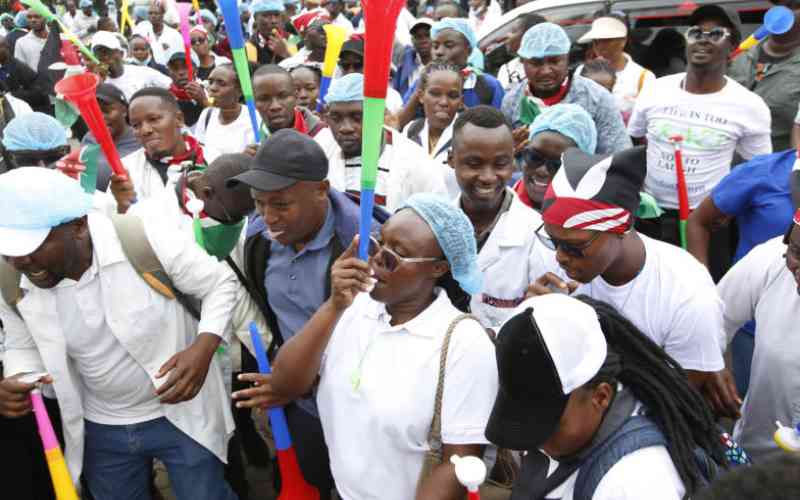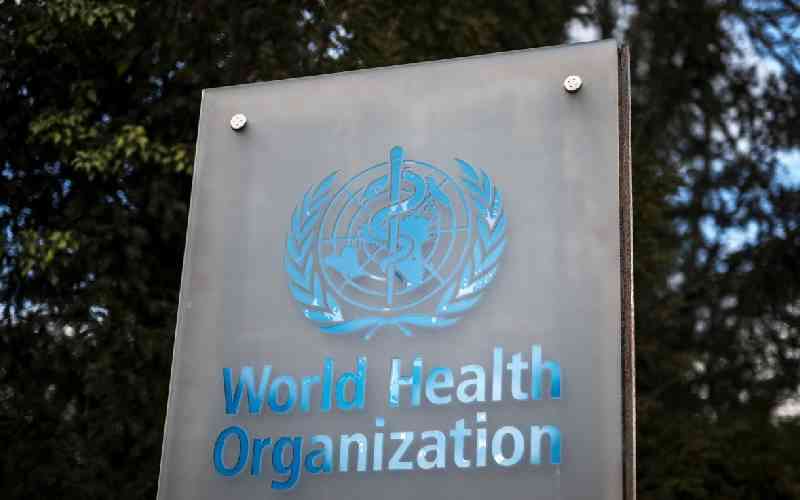
Health sector stakeholders from across East Africa have issued a clarion call for stronger collaboration to promote gender equality in leadership positions.
During the inaugural WomenLift Health East Africa Regional Dialogues held in Nairobi, the event attracted over 300 participants, including health professionals, policymakers, civil society representatives, and development partners.
Themed "Equipped to Lead - Centering Allyship and Gender Equality to Transform Global Health Leadership", the conference underscored the persistent gender gap in health leadership, driven by systemic biases and sociocultural norms.
Delegates also explored how these issues hinder countries from building resilient and inclusive health systems that are responsive to the needs of women.
According to the Women in Global Health Report, women constitute 70 per cent of the global healthcare workforce but hold only 25 per cent of senior leadership roles.

In East Africa, the disparity is even more pronounced, with just 5 per cent of leadership roles held by women from low- and middle-income countries.
Dr Zeinab Gura, Deputy Director General for Health in Kenya's Ministry of Health, stressed the need for women's perspectives in leadership to achieve Universal Health Coverage (UHC).
"Women deliver much of the health services, yet they are underrepresented in leadership. When women are integral to leadership, health systems become more efficient and responsive," she said.
Dr Gura also emphasized the role of male allies in addressing the leadership gap, adding, "Allyship means not just speaking, but listening, showing up for the long haul, and creating trust.
There is no 'us versus them' when it comes to leadership - it's about working together to improve health outcomes."
Amie Batson, President of WomenLift Health, highlighted the importance of shifting power dynamics to create more inclusive leadership structures.
"Meaningful allyship can help open doors for women leaders, whether through male champions using their influence or through peer alliances that support women's career advancement," she said.

The dialogues called for increased investment in mentorship programs, skills training, and policy reforms that prioritize gender equality. With current progress, it will take an estimated 140 years to achieve equal representation in leadership across all sectors, according to a UN report.
East Africa Director of WomenLift Health, Dr. Norah Obudho, emphasized the importance of collective action: "Male allies have a responsibility to use their privilege to drive change, while senior women can mentor the next generation of leaders.
By working together, we can close the gender gap and empower women to lead."
The event also urged governments and institutions to adopt gender-responsive policies such as equal pay, flexible working schedules, and paid parental leave to support women in advancing to leadership roles.
The WomenLift Health East Africa Regional Dialogues are part of a broader effort to create sustainable solutions for gender equality in global health, with hopes that such investments will accelerate progress toward achieving the African Union's Agenda 2063 and the Sustainable Development Goals.
 The Standard Group Plc is a multi-media organization with investments in media
platforms spanning newspaper print
operations, television, radio broadcasting, digital and online services. The
Standard Group is recognized as a
leading multi-media house in Kenya with a key influence in matters of national
and international interest.
The Standard Group Plc is a multi-media organization with investments in media
platforms spanning newspaper print
operations, television, radio broadcasting, digital and online services. The
Standard Group is recognized as a
leading multi-media house in Kenya with a key influence in matters of national
and international interest.











